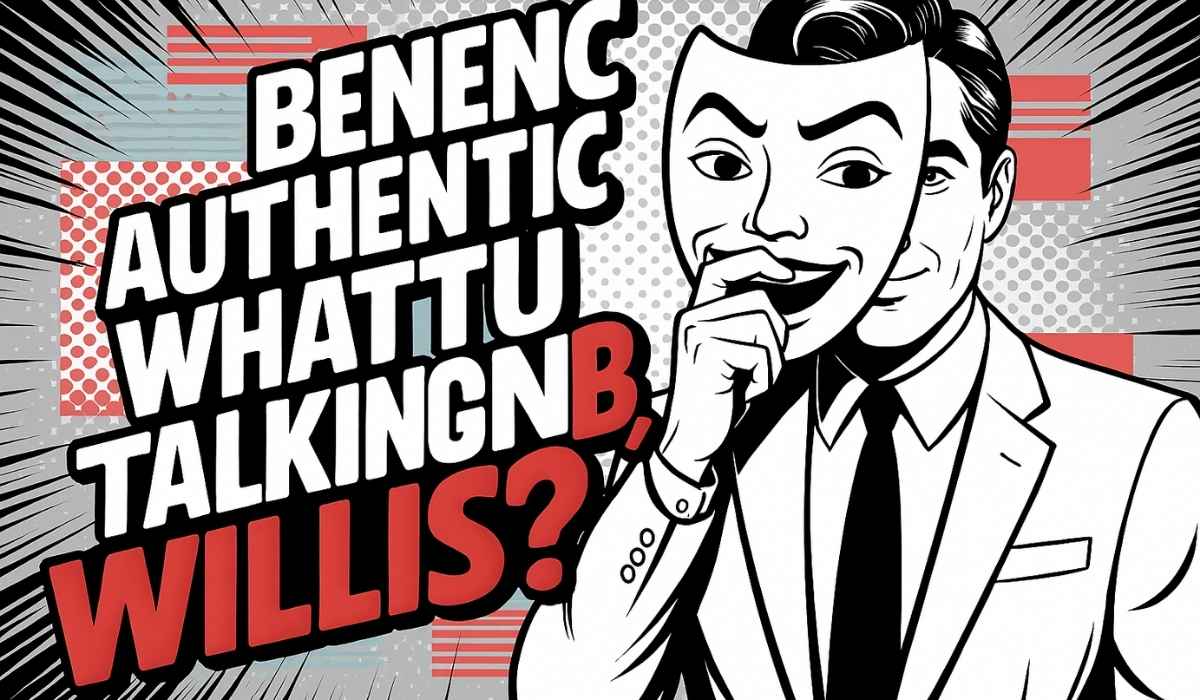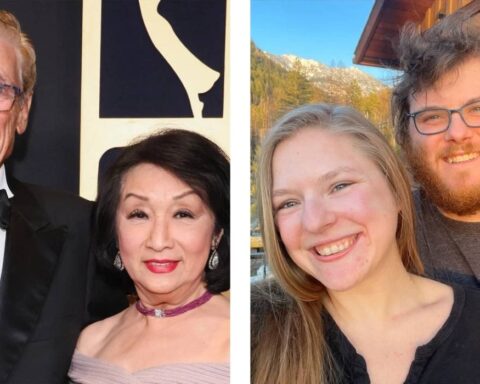In today’s fast-paced, hyperconnected digital world, the call for Being Authentic Whatutalkingboutwillis has never been louder or more relevant. This curious and attention-grabbing phrase may seem quirky at first glance, but it encapsulates a profound movement urging individuals to reconnect with their genuine selves. Our society is awash with curated online personas, photoshopped realities, and filtered emotions, making authenticity a rare and precious commodity. So, what does it really mean to be authentic, and how does “Whatutalkingboutwillis” tie into this growing social narrative? Let’s explore the deep cultural significance, psychological benefits, and practical steps for embracing authenticity in an increasingly artificial world.
The Pop Culture Roots of “Whatutalkingboutwillis”
To understand Being Authentic Whatutalkingboutwillis, it’s essential first to explore the origins of the phrase that makes it so distinctive. “What you talkin’ ’bout, Willis?” became an iconic catchphrase from the late 1970s American sitcom Diff’rent Strokes, where the character Arnold Jackson, portrayed by the talented Gary Coleman, would use the expression to humorously challenge or question his brother’s statements. Over the decades, the phrase has cemented itself in pop culture lexicon as a playful yet skeptical retort when confronted with dubious claims or surprising revelations.
In the context of authenticity, invoking “Whatutalkingboutwillis” serves as a metaphorical challenge to the facades people present in their personal and online lives. It’s a verbal nudge to reexamine whether one is projecting an honest self-image or succumbing to the pressures of societal expectations. In essence, the phrase prompts both introspection and outward questioning: Are we really being our true selves, or merely playing a role that others expect of us?
The Deep Desire for Authenticity in a Digital Age
The digital revolution, while opening doors to unprecedented connection and self-expression, has also inadvertently fueled a crisis of authenticity. Social media platforms, while designed to connect us, often encourage us to showcase only the best parts of our lives. Carefully curated Instagram grids, Snapchat filters, and Facebook highlight reels paint a glossy picture of life that often diverges sharply from reality. In this context, Being Authentic Whatutalkingboutwillis arises as a counter-movement, compelling people to strip away the veneer and present themselves as they truly are.
This desire for authenticity isn’t just a trendy whim; it’s rooted in fundamental psychological needs. Humans crave connection that is genuine, relationships built on honesty, and environments where they can be their unfiltered selves. Yet, the social reward mechanisms of digital platforms can discourage this by prioritizing likes, shares, and viral content over sincere self-representation. The phrase “Whatutalkingboutwillis” cleverly embodies a resistance to this superficiality, acting as a cultural checkpoint that asks, “Are you showing the real you, or just the version that gets the most likes?”
Psychological Benefits of Being Authentic
One of the most compelling reasons to embrace Being Authentic Whatutalkingboutwillis is the array of psychological benefits tied to living an authentic life. Psychological research consistently shows that people who act in alignment with their true selves experience higher levels of well-being, reduced anxiety, and greater life satisfaction. When your internal values match your external behaviors, you experience what psychologists call “authentic alignment,” which leads to less internal conflict and emotional strain.
Conversely, constantly wearing a mask—whether to appease societal norms, workplace expectations, or online audiences—can lead to cognitive dissonance, stress, and even depression. Authentic living allows individuals to build resilience, foster deeper interpersonal connections, and navigate life’s challenges with a grounded sense of self. Being Authentic Whatutalkingboutwillis isn’t just a catchphrase—it’s a psychological strategy for healthier, more fulfilling living.
Authenticity in Personal Relationships
Relationships thrive on authenticity. Whether in friendships, romantic partnerships, or familial ties, being your genuine self paves the way for deeper emotional bonds. Pretending to be someone you’re not may win temporary approval, but it creates barriers to real intimacy and understanding. Being Authentic Whatutalkingboutwillis serves as a reminder that genuine relationships are rooted in truthfulness and vulnerability.
When you present yourself authentically, you not only invite others to do the same but also establish a foundation of trust and respect. This level of transparency leads to more meaningful conversations, less miscommunication, and stronger emotional connections. It’s a reciprocal process: the more authentic you are, the more likely others are to mirror that honesty, resulting in healthier, more supportive relationships.
The Corporate World and Authentic Leadership
Authenticity isn’t just a personal virtue—it has significant implications in professional settings, too. In recent years, the concept of authentic leadership has gained traction, highlighting the importance of leaders who are transparent, ethical, and genuine in their approach. Being Authentic Whatutalkingboutwillis is increasingly relevant in workplaces where employees value leaders who demonstrate integrity over those who merely perform for optics.
Authentic leaders inspire trust and loyalty because their actions align with their words. They foster an inclusive work environment where employees feel valued for their true selves rather than for their ability to fit a corporate mold. Such leadership styles contribute to better team dynamics, increased innovation, and overall organizational success. When companies encourage authenticity, they not only enhance employee satisfaction but also cultivate a culture of openness and creativity.
Social Media: The Double-Edged Sword of Authenticity
Social media platforms have paradoxically become both a breeding ground for inauthenticity and a stage for raw, unfiltered expression. While influencers often portray polished, seemingly perfect lifestyles, a growing number of users are pushing back by embracing movements like Being Authentic Whatutalkingboutwillis. Hashtags promoting authenticity, behind-the-scenes content, and unedited photos are becoming increasingly popular.
However, the challenge remains: how can one remain authentic in a space that inherently rewards curated perfection? The answer lies in intentionality. By consciously choosing to share not just the highs but also the lows, and by engaging in honest conversations online, individuals can reclaim their narratives. “Whatutalkingboutwillis?” becomes a digital litmus test—questioning the authenticity of what we see and post in the social media sphere.
Practical Steps to Embrace Authentic Living
Living authentically doesn’t happen by accident; it requires deliberate effort and self-awareness. Here are some practical strategies to embody Being Authentic Whatutalkingboutwillis in your daily life:
- Self-Reflection: Regularly examine your thoughts, motives, and actions. Journaling can be a useful tool for this introspection.
- Value Alignment: Identify your core values and ensure your decisions and behaviors reflect them.
- Speak Your Truth: Communicate honestly while being considerate of others’ feelings.
- Practice Vulnerability: Don’t shy away from showing imperfections or admitting mistakes.
- Surround Yourself with Authentic People: Seek relationships that encourage honesty and discourage pretense.
By incorporating these practices, authenticity transforms from a lofty ideal into a daily habit, enriching your interactions and personal growth.
Authenticity and Mental Health: A Critical Connection
There is an undeniable link between authenticity and mental health. Pretending to be someone you’re not can lead to chronic stress, burnout, and emotional exhaustion. Being Authentic Whatutalkingboutwillis can be seen as an antidote to these mental health challenges. When you embrace your true self, you’re less likely to feel the pressure of maintaining a façade, which in turn reduces psychological strain.
Therapists often encourage clients to explore their authentic selves as a pathway to healing. Authentic living fosters self-acceptance, a critical component in managing issues like anxiety, depression, and low self-esteem. Furthermore, when you’re authentic, you’re more likely to seek support when needed, reducing feelings of isolation and helplessness.
Cultural Shifts Toward Authenticity
Societal norms are gradually shifting to embrace authenticity as a virtue rather than a vulnerability. Movements advocating for mental health awareness, body positivity, and inclusivity all champion the idea of being true to oneself. Being Authentic Whatutalkingboutwillis resonates within these cultural shifts, reinforcing that authenticity is not just personally beneficial but socially necessary.
This evolution is evident in media, advertising, and even politics, where audiences increasingly demand transparency and authenticity from public figures. Brands that portray realistic images and narratives are more likely to gain consumer trust. The cultural embrace of authenticity suggests that the world is slowly but surely becoming a space where being real is celebrated rather than criticized.
Conclusion: Making Authenticity a Way of Life
In conclusion, Being Authentic Whatutalkingboutwillis is far more than a quirky phrase—it’s a philosophy for modern living. It challenges us to question not just the personas we encounter but also the ones we project. Authenticity is not about perfection; it’s about coherence between our inner beliefs and outward actions. As we navigate a world increasingly saturated with artificiality, choosing authenticity becomes a radical, empowering act.
By embracing our true selves, fostering genuine relationships, and promoting authenticity in our communities, we contribute to a healthier, more connected world. So the next time you find yourself hiding behind a façade, pause and ask, “Whatutalkingboutwillis?” Let that question guide you back to your authentic self.
Frequently Asked Questions (FAQ)
1. What does “Being Authentic Whatutalkingboutwillis” really mean?
- It means living your life truthfully and genuinely, while also using the phrase “Whatutalkingboutwillis” as a cultural cue to question inauthenticity in oneself and others.
2. Why is authenticity important in relationships?
- Authenticity builds trust and deep emotional bonds. Without it, relationships often lack depth and honesty, making meaningful connections difficult.
3. Can being authentic help my mental health?
- Yes, being authentic can reduce stress, anxiety, and depression by aligning your actions with your true self, leading to greater emotional well-being.
4. How do I practice authenticity online?
- Share genuine experiences, avoid over-curating your social media presence, and engage in honest conversations rather than focusing solely on appearances.
5. What are some practical steps to become more authentic?
- Regular self-reflection, value alignment, honest communication, practicing vulnerability, and surrounding yourself with like-minded, authentic people are key steps.









